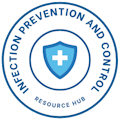
Antibiotic Stewardship
What is antibiotic stewardship?
Antibiotic stewardship is the effort to improve how and when antibiotics are given. This means medical providers are choosing the right antibiotic, at the right dose, for the right duration, and at the right time. It also means providers are not giving antibiotics when they would not be helpful.
What is unnecessary antibiotic use?
Antibiotics are not an effective treatment for all health conditions.
Antibiotics are not helpful when:
- You have an infection that is caused by a virus (like a cold or the flu).
- You don't have an infection but instead have some other medical problem (such as low blood pressure).
- Bacteria are found in a urine specimen you gave, but you do not have symptoms of infection. It is normal for many older people without symptoms of a urinary tract infection to have bacteria in their urine, especially in long-term care.
Studies have shown that 40 - 75% of antibiotics prescribed in nursing homes may be unnecessary or inappropriate.
How can antibiotics harm?
Antibiotics can save lives but using antibiotics can cause problems too. Older people may have more side effects from medicines, which can cause problems all over the body.
In some cases, antibiotics can:
- Cause nausea and vomiting.
- Cause diarrhea, including the kind due to C. difficile, an infection that can lead to severe symptoms.
- Cause rash or other allergic reactions.
- Harm your kidneys or other organs.
- Create bacteria that are resistant to antibiotics.
What is "antibiotic resistance"?
Antibiotics normally work by killing germs called bacteria. Sometimes not all the germs are killed, and the strongest ones are left to grow and spread. A person can get sick again, and this time the germs are harder to kill because the antibiotics no longer work against the stronger germs. This is called resistance and makes some infections very hard to treat.
Antibiotic resistance can make you sick longer which could mean more health care visits and antibiotics that are even stronger. The more often antibiotics are prescribed inappropriately or unnecessarily, the greater the chance that the germs will become resistant.
What does antibiotic stewardship look like in the long-term care setting?
There are seven CDC Core Elements for Antibiotic Stewardship in Nursing Homes:
- Leadership commitment,
- Accountability,
- Drug expertise,
- Action,
- Tracking,
- Reporting and
- Education.
Ask your long-term care facility leadership how they are meeting each of the core elements.
Resources
Information for Residents and Families
- Suspect a Urinary Tract Infection? How Taking Antibiotics When You Don't Need Them Can Cause More Harm Than Good (PDF)
- When Do You Need an Antibiotic? (PDF)
- Nursing Home Effective Communication Toolkit
Continuing Education
- Antibiotic Stewardship Trainings | CDC
- Appropriate Use of Short-Course Antibiotics in Common Infections: Best Practice Advice | American College of Physicians
- Urinary Tract Infections (UTIs) and Bacteriuria in Long-Term Care
Tools to Assess Antibiotic Utilization
- Antibiotic High Utilization Guidance
- Toolkit to Improve Antibiotic Use in Long-Term Care | Agency for Healthcare Research and Quality
- Shorter is Smarter - Appropriate Use of Short-Course Antibiotics in Common Infections
- Loeb and Revised McGeer Criteria
- Beta-Lactam Allergy Evaluation Toolkit
Evaluation and Management Summary Guidelines
- Clostridioides difficile Infection
- Skin and Soft Tissue Infection
- Community-Acquired Pneumonia
- Uncomplicated Cystitis and Pyelonephritis (UTI)
- Catheter-Associated Urinary Tract Infection
- Common Cold
- ABCs for Diagnosing Urinary Tract Infection in Long Term Care
IDSA Practice Guidelines for Common Conditions